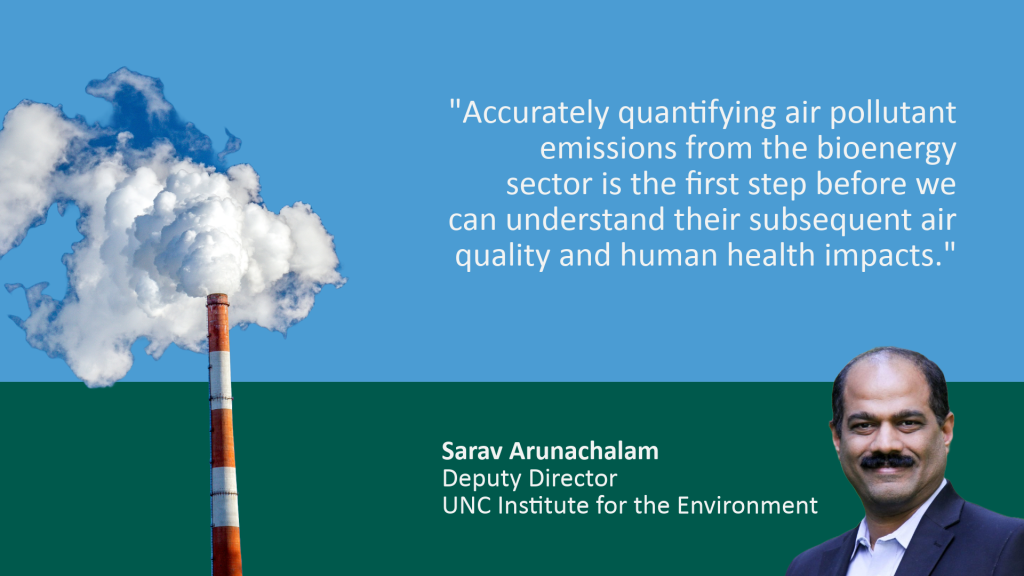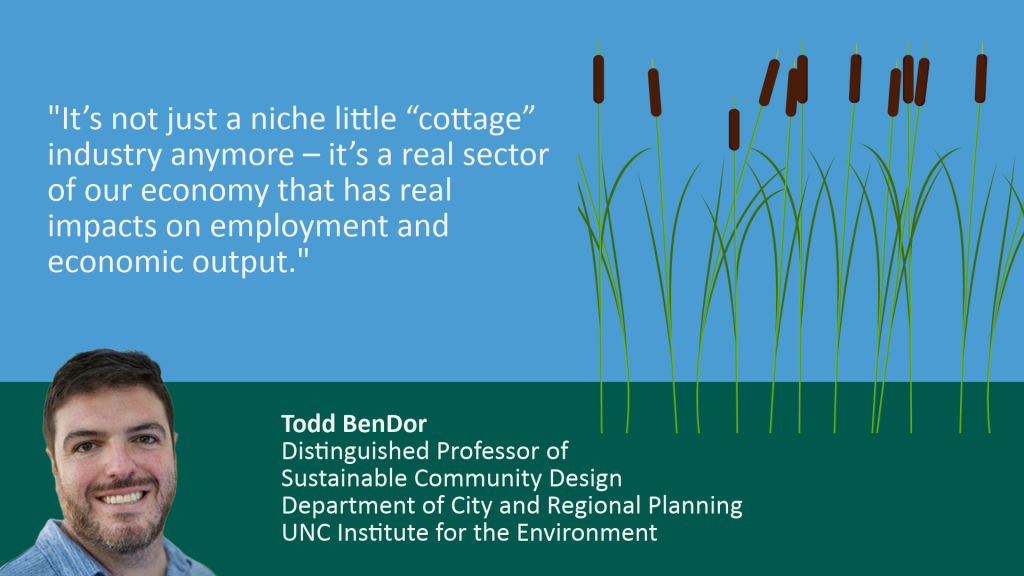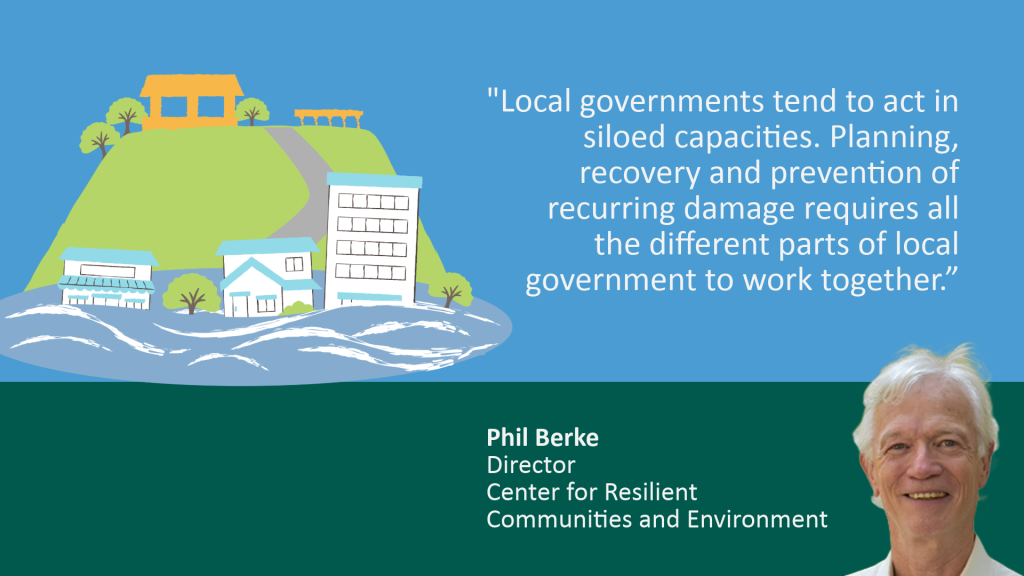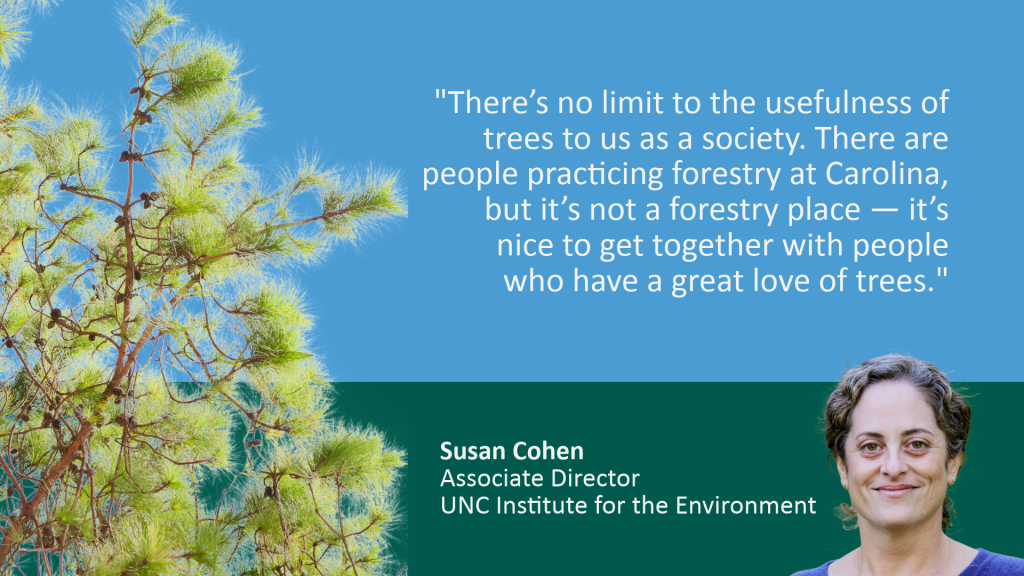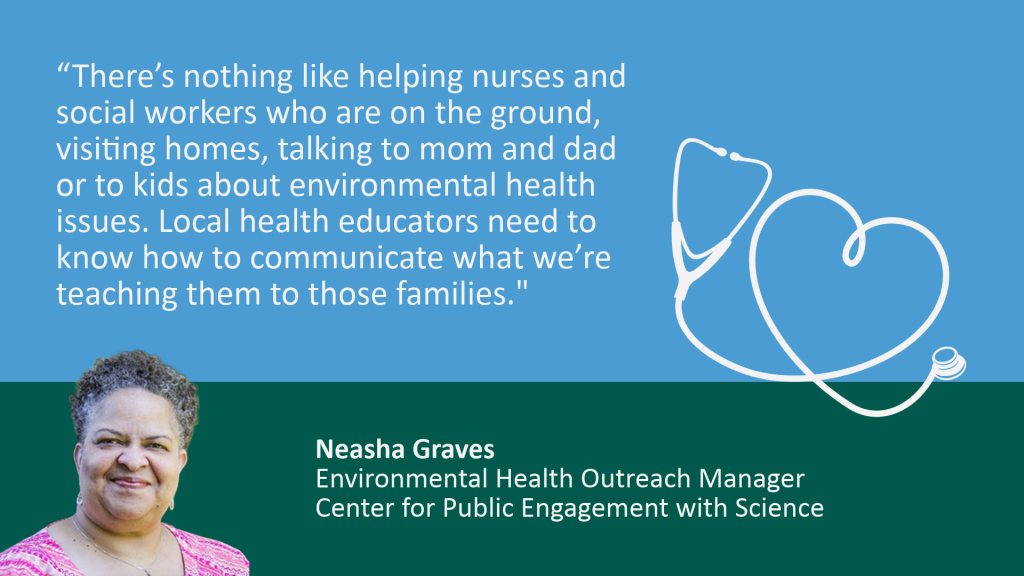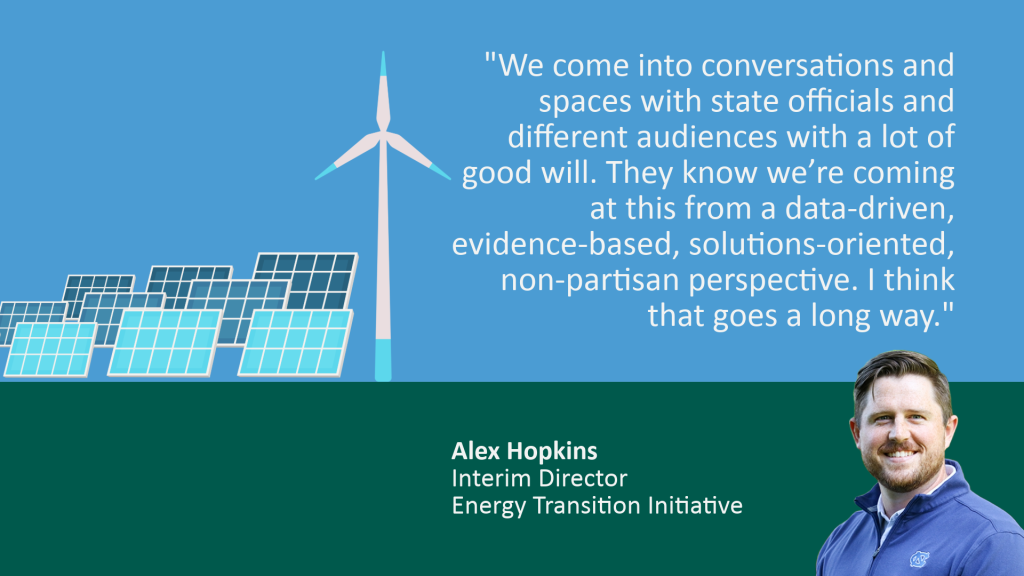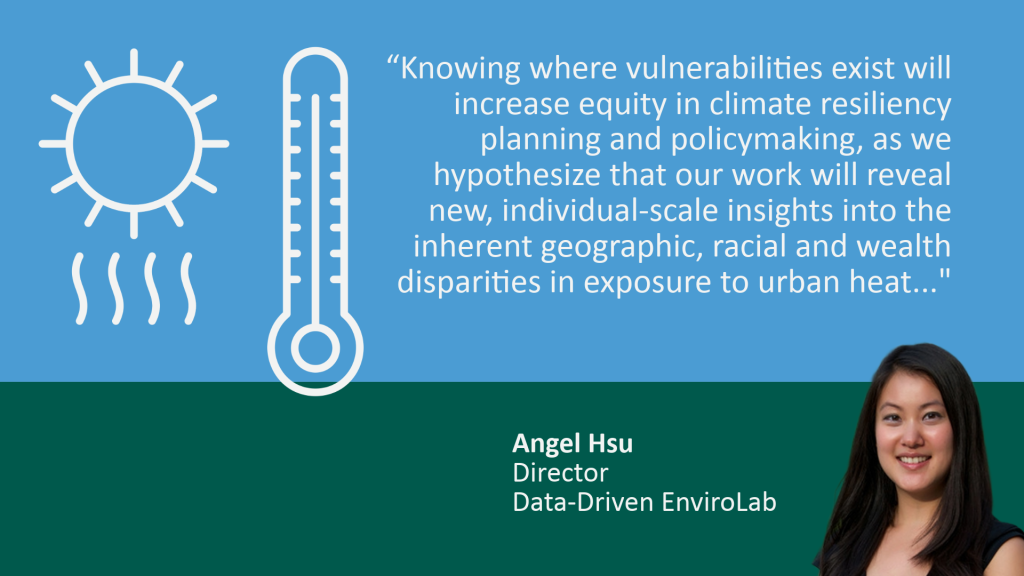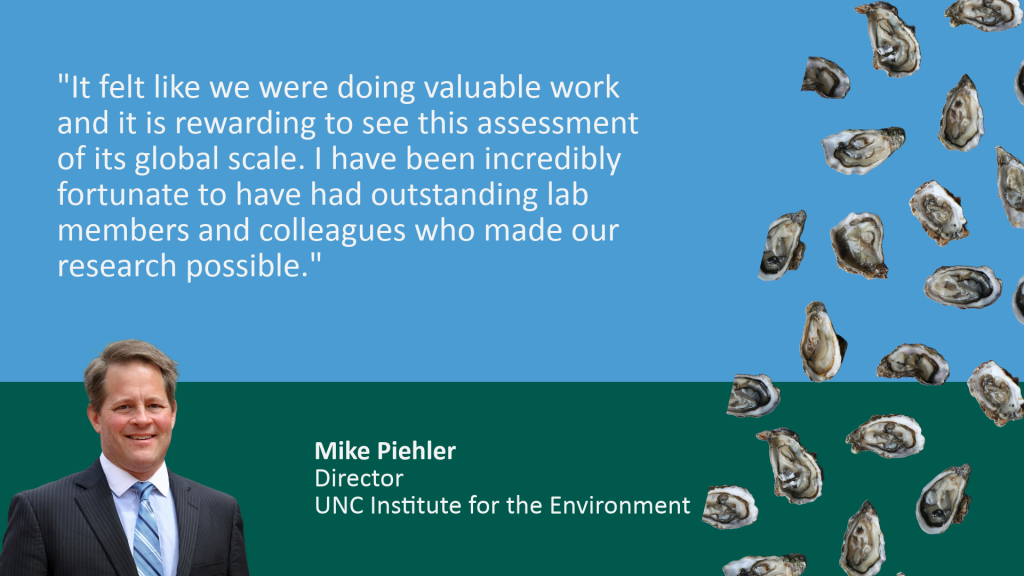June 5 marks World Environment Day, celebrated every year since 1972. This year’s theme is land restoration, desertification and drought resilience. The UNC Institute for the Environment has researchers working in this area, along other areas, such as air pollution, community engagement and wildlife conservation. Learn about some of the Institute’s most recent research and projects below.
The Research
A 2023 study from Sarav Arunachalam found that on average, emissions from biomass-based facilities are up to 2.8 times higher than their non-biomass counterparts, per unit energy. This has implications in the energy transition, as we look into presumed “carbon-neutral” options. Read more.
The Research
A 2023 study from Todd BenDor employed a national survey of wetland and stream mitigation firms. It found that the wetland and stream restoration market has a significant impact on the U.S. economy, generating $9.6 billion in economic impact and supports more than 53,000 jobs nationally. Read more.
The Research
Phil Berke is a research professor in the UNC Department of City and Regional Planning, focusing on the relationship between community resilience, urban planning and natural disasters. A decade ago, with colleagues at Texas A&M University, he helped create the Plan Integration for Resilience Scorecard (PIRS). Through funding from U.S. Department of Homeland Security (DHS), the Coastal Resilience Center and a partnership with the American Planning Association (APA), PIRS got its own website in 2023. Read more.
The Program
When trees present a safety hazard or are lost to storms, Carolina Tree Heritage Program transforms the trunks and branches into furniture, sculptures, and other wooden creations, with proceeds going toward student opportunities, like internships and scholarships. Susan Cohen, associate director of the UNC Institute for the Environment, leads the CTH program along with Carolina Drone Lab. Read more.
The Program
Center for Public Engagement with Science works with the North Carolina Department of Health and Human Services’ Children’s Environmental Health Unit to develop trainings and educational resources. The group helps NCDHHS share these resources and also makes sure public health professionals and/or nonprofits with a health mission have access to them. UNC-Chapel Hill featured Environmental Health Outreach Manager Neasha Graves in a Q&A earlier this year. Read more.
The Program
Alex Hopkins leads the Energy Transition Initiative (ETI), a joint program of the UNC Institute for the Environment and the UNC School of Law’s Center for Climate, Energy, Environment & Economics (CE3). In this role, Hopkins engages with those looking to make progress in the energy transition. His audiences vary widely, from state policymakers to students right here at Carolina. In 2023, he recorded an episode of the Sustainable Carolina Podcast with UNC IE Director Mike Piehler. Listen to the episode.
The Research
In 2023, the Data-Driven EnviroLab, led by Angel Hsu, received a $1.5 million NASA grant to use satellite remote sensing data, community-collected temperature data and machine learning to evaluate disparities in heat stress from environmental and climate injustices across the country. Read more.
The Program
Some parts of NC have lost 98% of their bat populations. The BatPack program, led by Highlands Field Site Director Rada Petric, is a citizen science projects that gets ultrasonic monitors into the hands of hikers on the southern Appalachian Trail. These monitors track bat activity and will help inform future conservation efforts. Read more.
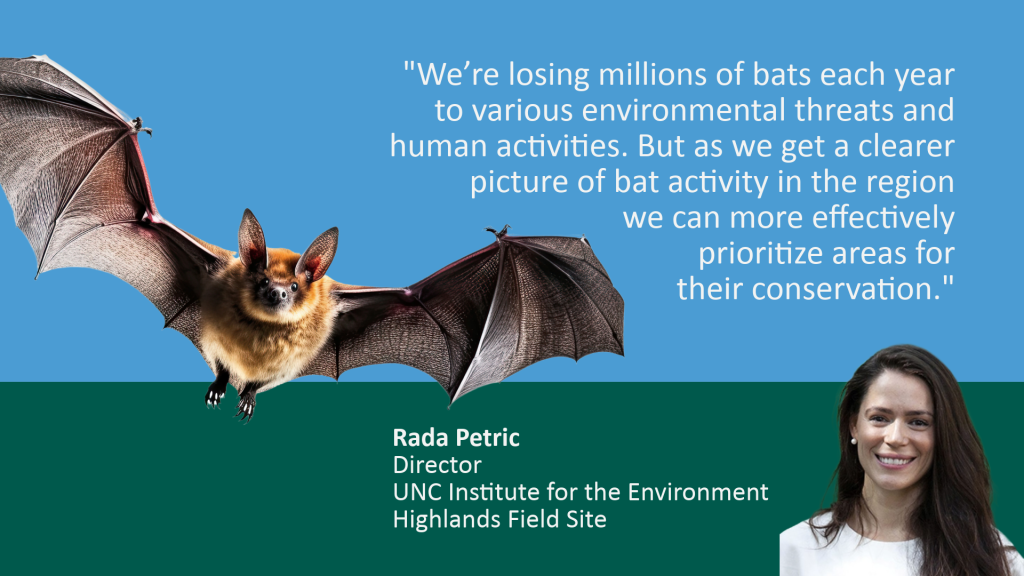
The Research
UNC-Chapel Hill recently ranked second in the world for oyster reef research. Mike Piehler’s lab was the first to measure oyster reef mediated denitrification, a natural process that improves water quality without harming the shellfish or its habitat. Read more.

